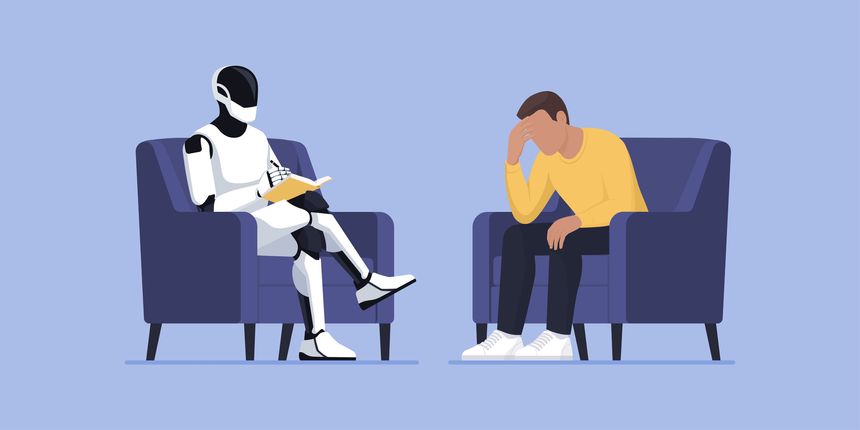On August 4, 2025, Illinois enacted the Wellness and Oversight for Psychological Resources Act (HB 1806), the first U.S. state law to specifically regulate the use of artificial intelligence in the professional mental health space. Effective immediately, HB 1806 is designed to protect consumers by tightly circumscribing the permitted versus prohibited uses of AI in the context of “therapy and psychotherapy services.”
The law draws a bright line between administrative or supplementary tasks on the one hand, and therapeutic interaction on the other hand. More specifically, licensed therapy professionals may use AI for “administrative support” (e.g., scheduling, billing) and “supplementary support” (e.g., maintaining records, analyzing anonymized clinical data, organizing referrals). However, they are prohibited from letting AI make independent therapeutic decisions, directly interact with clients, generate treatment recommendations without clinician oversight, or detect emotions or mental states. Where AI is used to record or transcribe a clinical session, the provider must first disclose this to the individual in writing and obtain their explicit, revocable, and written consent.
HB 1806 contains several carveouts, including that it does not apply to religious counseling, peer support, or publicly available self-help and educational resources that do not purport to offer therapy or psychotherapy services. Enforcement authority resides with the Department of Financial and Professional Regulation, which may investigate violations and levy civil penalties up to $10,000 per violation.
HB 1806 signals a regulatory posture that reflects the cultural sensitivity around recent instances of individuals—often minors—confiding in AI tools before ultimately engaging in violence or self-harm that could have been flagged or averted with human oversight. Against this backdrop, the Illinois legislature has decided to treat AI in the mental health space as a strictly-controlled support tool, rather than a stand‑alone therapeutic interface. Therapy providers operating in Illinois should inventory the AI tools used in their workflows, update disclosures and consent processes where clinical sessions may be recorded or transcribed by AI, and ensure human oversight and review of any AI-generated clinical outputs. Developers of AI mental health tools should avoid marketing products as “therapy” or “therapeutic communication” unless intended to be deployed exclusively under the supervision of a licensed professional. Moving forward, we can expect Illinois’ new law to serve as an initial blueprint for other jurisdictions considering similar guardrails on the use of AI in mental health spaces.


/Passle/678abaae4818a4de3a652a62/SearchServiceImages/2026-01-29-20-29-07-147-697bc313524cbfed07d5c4bd.jpg)
/Passle/678abaae4818a4de3a652a62/SearchServiceImages/2026-02-03-22-48-44-148-69827b4c47563efa893ee240.jpg)
/Passle/678abaae4818a4de3a652a62/SearchServiceImages/2026-02-02-21-18-57-605-698114c11a718361944c5d25.jpg)
/Passle/678abaae4818a4de3a652a62/MediaLibrary/Images/2026-01-31-05-19-49-542-697d90f5e563ba3bdaae9e39.png)